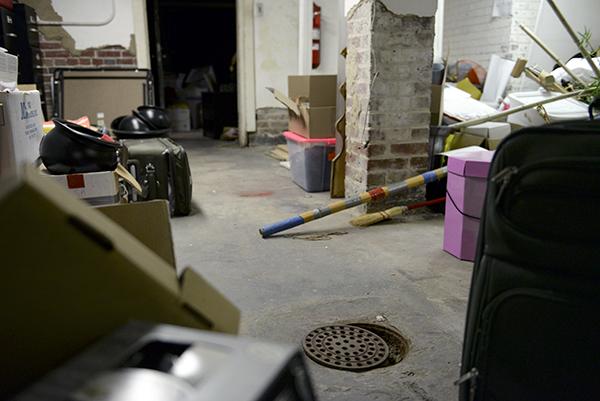Student leaders are calling on GW officials to replace couches and upgrade computers and televisions in the Multicultural Student Services Center as they continue to push for large-scale renovations to the more than 100-year-old building.
SA President Nick Gumas said he and other student leaders are focusing on smaller-scale updates to the space while they keep lobbying the University to invest in more complete renovations to the walls and ceiling.
“This is something I’m really passionate about, so we want to make sure we are doing small things now to benefit the students who use the space,” Gumas said.
University spokesman Kurtis Hiatt declined to comment on how much major renovations to the G Street building would cost, but student leaders said construction would have come to about $2 million. GW commits to funding major projects for the next year in May.
The president of the Multicultural Greek Council, Victoria Montero, said there are so many issues that it would “make more sense” to renovate the entire building. She said those problems include peeling paint, squeaking floorboards, a crumbling ceiling and a rat-infested basement.
“Everyone is really excited about the beautification, but if we’re just beautifying, there are still underlying problems in the building,” Montero said.
Victoria Goncalves, the vice president of Organization for Latino American Students, said groups who frequently use the space recommended that Gumas look to bring in new couches and chairs, as well as make updates to computers and TVs. There is no specific timeline for when those upgrades could roll out.
“GW cares a lot about what its facilities look like, and it would show that this is also an important place on campus that is just as high-tech, modern, new, renovated as any other building,” Goncalves said.
Multicultural student groups often want to hold events in the MSSC because it is easier than booking rooms elsewhere on campus, Goncalves added, and updated technology would improve those events.
Hiatt declined to comment on specific structural issues or how administrators are working with the SA to accomplish the short-term projects.
“The MSSC townhouse’s day-to-day operations and use remains unchanged,” Hiatt said.
Administrators from the Office of Diversity and Inclusion work in the building, where they focus on organizing programs like Native American Heritage Month. The building also includes an LGBT resource center, as well as meeting space for multicultural and LGBT student groups.
Unlike the larger Interfraternity Council and Panhellenic Association, which meet in the Center for Student Engagement offices in the Marvin Center, the Multicultural Greek Council does not have other space for meetings and storage aside from the MSSC building. The council holds general body meetings, executive board meetings and all-council dinners in the G Street building, Montero said.
Beyond meetings, students have come to see the MSSC as a “second home,” Montero said.
“If your friends are hanging out there, you’re going to go even if the building is crap,” Montero said. “But more people would be more welcomed into the building and more open to being there if it was nicer.”







